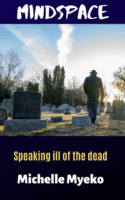My mother passed away last year. She was two months short of her 80th birthday and while she had been incapacitated and bed-ridden for months, her death did not bring me the imagined relief I thought I would feel as her depleted primary caregiver.
For months before she passed on, our life-long roles of her as the nurturer and me as the nurtured were completely turned on their heads. I fed, bathed and changed the nappies of the woman who had done the same for me decades earlier; the woman who had dedicated her life to taking care of me.
I loved my mom, deeply. Having to watch her slowly succumb to the relentless, murderous intentions of time was horrific. For weeks, all the gains she had had as an independent adult were stripped of her. First, walking turned to shuffling then to frequent falls until one day she lay down and never got up. This was like watching a baby’s development in reverse. After months of taking care of her, I grew despondent and I admit to wishing her away.
She had been sick with diabetes on and off since the age of 60. She would be hospitalised and then discharged then recover, almost completely, but this time it was different. Each new day sapped her strength until she became a shell of who she had been. In the mornings, I would go to her room and at times, she would look angry for making it into a new day. She was exhausted, we both were.
When she had a heart attack and passed on, I was not prepared for the grief that hit me. It still comes in waves. Losing a mother changed me. At my adult age, I feel orphaned. She was my first home, my beginning. I literally grew in her body. The reality of her being in a grave sits like a lump of coal in my throat.
During the funeral preparations, there was a moment of family conflict. Grief sometimes turns to anger. My eldest sister, in a meeting with the family and my mother’s priest, related a story of a mistake that my mom had made decades earlier. She, my sister, expressed anger at the mistake and I was shocked at her audacity. The shock turned to rage. I could not believe that she had spoken ill of her own dead mother.
In my community, everyone knows not to do that. The dead are almost revered in Xhosa culture; death has almost a canonising effect. This has to do with our ancestral beliefs that once someone dies they ascend and are promoted into being able to intercede between the wishes of those who are alive and plead with the creator to grant favours as ancestors. I have been to several funerals in my life and without fail all speakers speak well of the deceased. The good is highlighted, almost exclusively. The reasons for not harping on about the shortcomings of the dead person seem rational to me. Once a person is dead they are no longer in a position to change anything, any discussion of shortcomings is futile because the person is no longer in a position to fix anything, to do better. The other reason is that the dead are silent and any negative utterance said over their dead bodies becomes unjust because the person cannot reply or defend the charge. Speaking ill of the dead goes against natural justice whose core principle is “Audi alteram partem” or hearing both sides of the story.
Funerals are the final gathering with the deceased. It would make zero sense to use this final time of togetherness to list wrongs. All of us are aware that human beings are fallible and flawed. No one believes that the good spoken about the dead at funerals is the ONLY thing to say. People make mistakes. Funeral speeches focus on positive deeds because speaking well of the dead provides comfort to the bereaved while also serving to encourage good deeds by those left behind by focusing on the type of behaviours that positively impact society.
There is an old Latin aphorism, “De mortuis nihil nisi bonum”. Translated it means, “Of the dead, say nothing but good”. This philosophy encourages generosity of spirit. It deals compassionately with flawed humanity at a time when fixing is no longer possible. We say only good things about the dead as a salve for those who are bereaved and also as insurance that one day when we pass the world will also look kindly upon our flaws and choose instead to focus on our redeeming qualities.
Tell us: Do you agree with the author that we should not speak ill of the dead? Why?


